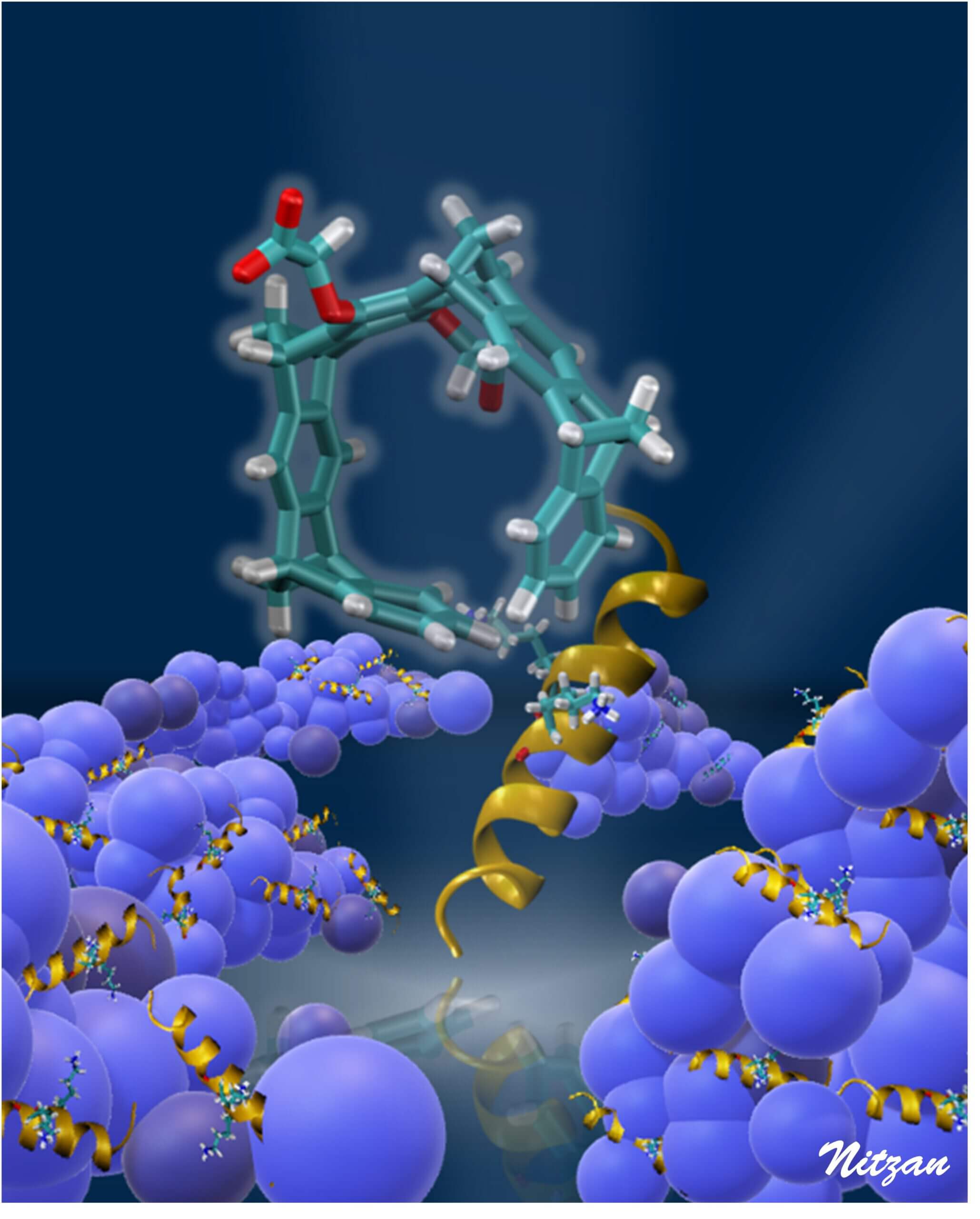A new study published by researchers from Ben-Gurion University of the Negev in collaboration with scientists from the USA and Germany offers a new development to combat antibiotic-resistant bacteria: the use of "molecular tweezers" that damage the biofilm that protects the bacteria

In recent years, the world of medicine has been dealing with an alarming phenomenon: antibiotics are becoming ineffective in dealing with many infectious diseases due to the resistance that bacteria develop against the antibiotic molecules that attack the bacterial cell. Recently, researchers from Ben-Gurion University of the Negev, led by Prof. Raz Yelink The Vice President and Dean of Research and Development, and Dr Ruit Malishav, and in collaboration with colleagues from the USA and Germany, that unique "molecular tweezers" are able to damage the "biofilm" layer of pathogenic bacteria, and as a result prevent the spread and toxicity of these bacteria.
A biofilm is a dense layer of fibers that protects the bacteria from immune substances secreted by the body, thus enabling the rapid growth of the bacteria. University researchers have found a particularly creative way to damage the biofilm with the molecular tweezers. The tweezers, which consist of two "molecular strips" connected between them, "hold" the biofilm fibers and thus "form" and destroy the protective layer. The importance of the research is that the tweezers do not attack the bacteria themselves (like most antibiotic drugs) but damage the biofilm. In this way, the development succeeds in damaging the bacteria and also preventing the development of the bacteria's resistance.
According to Prof. Yelink, "The success of the research to damage the biofilm using the molecular tweezers points to an innovative direction of antibiotic treatments against pathogenic bacteria without fear of developing resistance. In fact, this is the first time it has been proven that it is possible to prevent the formation of a biofilm and destroy an existing biofilm by molecular tweezers." Dr. Malishav also referred to the importance of the research and stated that "in the research, which lasted more than three years, we were able to decipher the mechanism by which the "molecular tweezers" succeed in preventing the formation of a biofilm. This breakthrough may open new ways to fight antibiotic-resistant bacteria.'
The research team of the study: Dr. Royat Malishav, and Prof. Raz Yelink (Ben-Gurion University of the Negev), Dr. Nir Selins and Prof. Mital Landau (Technion), Prof. Gal Bitan (UCLA), Profs. Thomas Schrader, Frank-Gerrit Klarner and Elsa Sanchez-Garcia (University of Essen, Germany) and Prof. Chunyu Wang (RPI, US).
More of the topic in Hayadan:
- The deadly ingredient: bacterial resistance to antibiotics and overcrowding in hospitals
- How can you fight bacterial resistance to antibiotics?
- A breakthrough in the chemical synthesis of antibacterials will serve as another weapon in antibiotic resistance
- Life in a movie: this is how bacteria develop resistance to antibiotics
- Worsening of bacterial resistance to antibiotics
